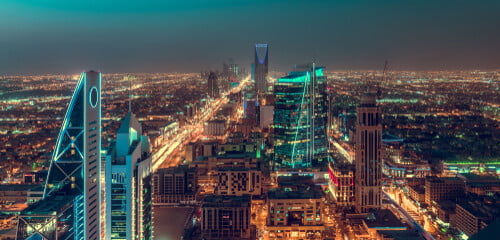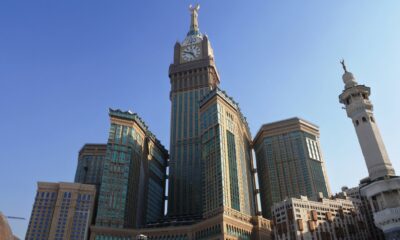Saudi Arabia is by far the largest oil producing nation in OPEC. It exported three times as many barrels of oil as the second largest oil producer, Iraq in 2014. This has caused many people to believe that Saudi Arabia is far from a green country.
However, Saudi Arabia has started to become a nation that is proudly focused on sustainability. In 1997, Ahmad Al-Gilani and Seamus Filor wrote a paper on the new environmental policies the country had recently passed. Environmental regulations were practically nonexistent in Saudi Arabia prior to the mid-1990s. This paper showed that they were a work in progress at the time.
In more recent years, Saudi Arabia has started to become much more fixated on environmentalism. In 2012, the government passed nine new environmental laws that had a profound impact on sustainability. Some of these new policies included:
- The Ambient Air Standard 2012
- Standard on Emissions from Mobile Sources 2012
- National Ambient Water Quality Standard of 2012
- Technical Guideline of 2012 on the Prevention of Major Accidents
- Standard on Waste Transportation 2012
The new environmental standards took a while to take effect. When they were first passed, critics on both sides of the aisle raised concerns. An employee from a major oil producer in Saudi Arabia told me that he feared the new policies would destroy his industry. Since Saudi Arabia overwhelmingly depends on tax revenue from the oil industry, this could have serious consequences for years to come.
Meanwhile, environmental advocates in Saudi Arabia also raised concerns. Of course, their concerns were coming from a different perspective. They warned that the new laws might not be adequately enforced. They said that the government would be reluctant to apply them consistently, since they would not want to destroy the oil industry that funded the majority of state projects. They also raised concerns that the new laws might not be effective enough, even if they were rigorously enforced.
It has been nearly seven years since those laws were first passed. We have finally collected some solid data on them. This data indicates that those laws are doing the job that was intended. In 2014, many people said that the newest royal decrees brought hope for the future of sustainability in the country. As the Guardian reports:
“Happy days are here for Saudi Arabia’s environmentalists. In early March, the Presidency of Meteorology and Environment (PME) announced a decree giving all companies five years to meet new air, water and noise pollution standards. All projects must fit into Saudi’s plan for international development, and must meet international benchmarks standards as part of the PME’s environmental plan to protect Saudi’s health and natural resources. The new regulations align with rules approved by Saudi’s Council of Ministers in 2008.”
More recent analyses are even more encouraging and suggest there is a strong cultural push for better environmental protections and investments in green technology.
New environmental laws have changed the culture of Saudi Arabia
The biggest concerns raised by free market advocates in Saudi Arabia have not come to pass. Some experts worried, for example, that the new clean air regulations would cripple the airline industry. Saudi Arabian airlines have said that the industry is as strong as it has ever been. One company in particular stated that they have been able to take a lot of passengers from the United States to Saudi Arabia cost-effectively and without leaving a large carbon footprint. This company said this is good for business, since most of their United States customers are especially concerned about sustainability and look for brands that share their concern.
Environmentalism didn’t used to be a major cause for concern in Saudi Arabia. This has changed after the new environmental laws were enacted.
Conclusion
All across the country, people have started becoming more concerned about environmentalism. Some experts believe that this marks a strong shift away from a culture dominated by oil with little regard for the future of our world.
Saudi Arabia is actually starting to become a leader in sustainability throughout the Middle East. They recently started going beyond merely pushing for stricter environmental regulations. They have even started investing in new industries that will be more sustainable. They are actually using oil revenues to invest in green energy.
This is a very encouraging development. Saudi Arabia is a great example for other countries in the Middle East. They will soon start pushing for more sustainable practices.


 Environment12 months ago
Environment12 months agoAre Polymer Banknotes: an Eco-Friendly Trend or a Groundswell?

 Features11 months ago
Features11 months agoEco-Friendly Cryptocurrencies: Sustainable Investment Choices

 Features12 months ago
Features12 months agoEco-Friendly Crypto Traders Must Find the Right Exchange

 Energy11 months ago
Energy11 months agoThe Growing Role of Solar Panels in Ireland’s Energy Future





























